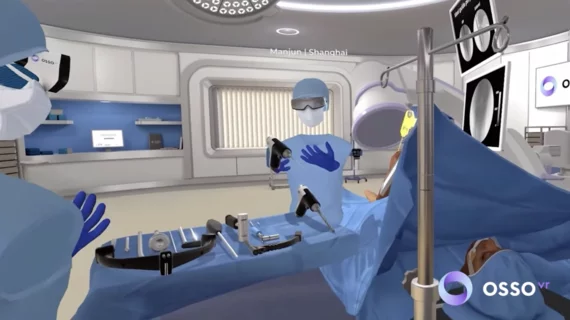American College of Cardiology announces new collaboration with virtual reality specialists
The American College of Cardiology (ACC) is working with Osso VR, a San Francisco-based virtual reality (VR) company, to bring VR training to cardiologists, cardiac surgeons and other cardiovascular professionals.
The groups see their collaboration as “a new precedent for the future of medical training.” They are especially excited to see what VR can do to bring minimally invasive interventional procedures to more and more patients throughout the United States.
“The ACC values innovation as a critical component in the transformation of global cardiovascular care,” ACC Chief Innovation Officer Ami Bhatt, MD, a cardiologist and associate professor at Harvard Medical School, said in a prepared statement. “The integration of immersive technology will ensure our clinicians have the most advanced tools at their disposal. Through our collaboration with Osso VR, we’re providing a powerful learning environment that will democratize access to advanced education and allow care providers to flourish in their field, bringing leading-edge cardiac procedures to more patients.”
“Hands-on, real-world training elevates a clinician’s experience and education so that they can provide the highest quality care to their patients,” added Michael Spooner MD, co-chair of the ACC Simulation Workgroup. “Providing an immersive, virtual reality experience that allows real-life procedural training in a remote and on-demand experience is a game changing technology that expands the boundaries of education from a purely cognitive domain to now an immersive, psychomotor experience. Ultimately it can allow clinicians to better train for real-world situations and challenges.”
Justin Barad, MD, Osso VR co-founder and CEO, said he and the rest of the company are “honored to partner with the ACC to develop a leading-edge training program for cardiovascular professionals so that every patient across the world has access to the safest, most advanced cardiac procedures available.”
Additional video interviews with Bhatt about a wide range of topics can be viewed here, here, here and here.

